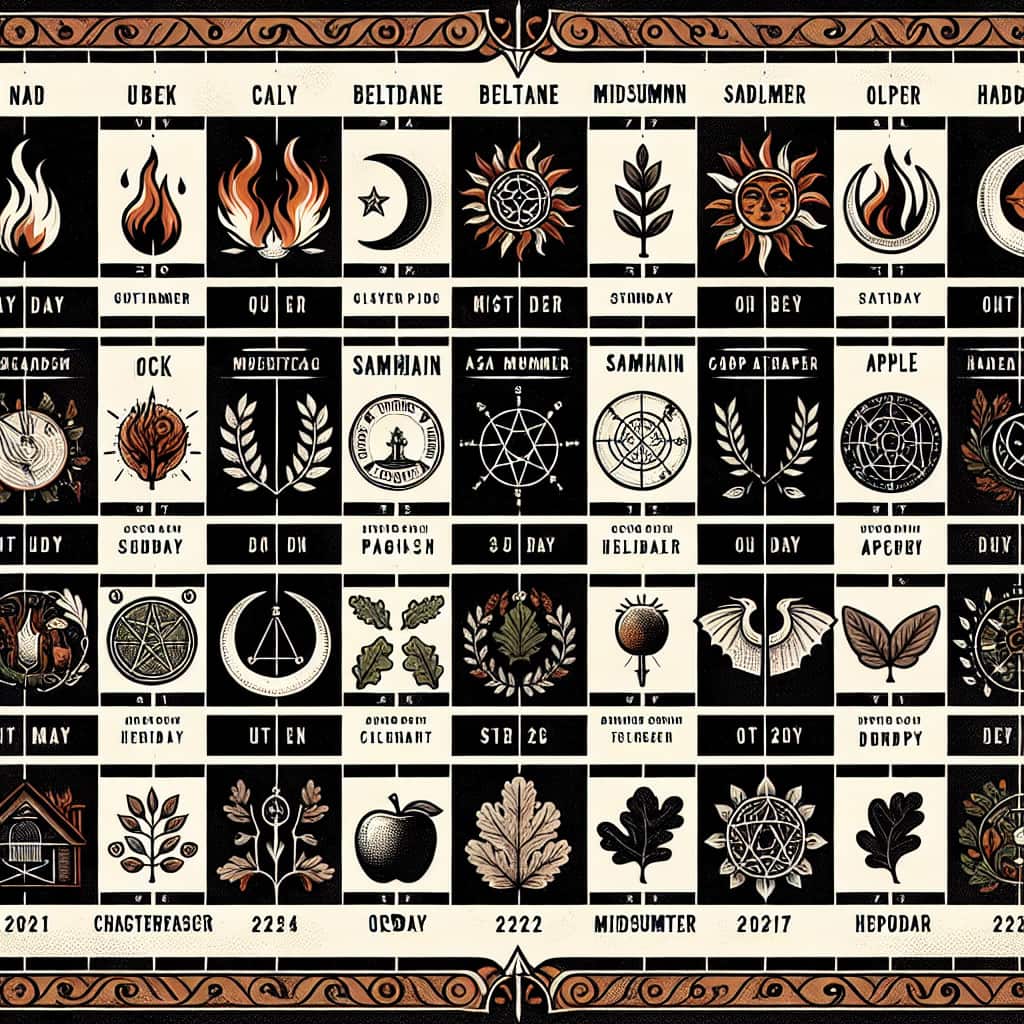The term “Pagan holidays” is used to refer to a variety of religious and spiritual observances that have been practiced throughout the world for centuries. These holidays are often rooted in ancient cultural and religious traditions, but still remain relevant in today’s modern world. This article will explore the meaning of Pagan holidays, their origins and the various ways in which they are still celebrated today. We will also look at some of the most popular Pagan holidays and their associated rituals and practices.
Pagan holidays are religious celebrations and observances that are based on ancient pagan beliefs. Pagan holidays are often celebrated by people of various spiritual paths, including Wicca, Paganism, and other nature-based religions. While many pagan holidays are based in ancient mythologies, many of them are also adapted to fit with modern religious and spiritual beliefs.
What Are Pagan Holidays?
Pagan holidays are celebrations and observances based on ancient pagan beliefs. These holidays are often observed in various pagan traditions, including Wicca, Witchcraft, Druidism, and other nature-based religions. Pagan holidays often follow the seasons and are often celebrated in alignment with the solstices and equinoxes.
What Are Some Common Pagan Holidays?
Some of the most common pagan holidays include Yule (Winter Solstice), Ostara (Spring Equinox), Beltane (Spring Festival), Litha (Summer Solstice), Lammas (Lughnasadh), Mabon (Fall Equinox), and Samhain (Halloween). Each of these holidays are celebrated differently by various pagan traditions, but many of them involve rituals such as feasting, dancing, and bonfires. Some traditions also incorporate divination, spell work, and other magical activities into their celebrations.
How Are Pagan Holidays Celebrated?
Pagan holidays are often celebrated in a variety of ways, depending on the tradition and the specific holiday being celebrated. Many pagan holidays involve feasts and gatherings, as well as rituals and activities that are specific to the holiday. For example, Yule is traditionally celebrated with feasting and a Yule log, while Beltane is celebrated with a Maypole dance and the lighting of bonfires. Other activities that are often incorporated into pagan holiday celebrations include divination, chanting, spell work, and offerings to the gods and goddesses.
What Are the Origins of Pagan Holidays?
The origins of pagan holidays are rooted in ancient pagan beliefs and mythologies. Many of these holidays were celebrated by ancient cultures around the world, including the Celts, Norse, and other pre-Christian cultures. These holidays often followed the cycle of the sun and the changing of the seasons, and were celebrated in alignment with the solstices and equinoxes.
How Are Pagan Holidays Different From Other Holidays?
Pagan holidays differ from other holidays in several ways. First, they are often based in ancient pagan beliefs and mythologies, rather than in modern religious teachings. Second, they often follow the changing of the seasons and are celebrated in alignment with the solstices and equinoxes. Finally, pagan holidays often involve rituals and activities that are specific to the holiday, such as feasting, dancing, bonfires, and offerings.
What Are the Benefits of Celebrating Pagan Holidays?
Celebrating pagan holidays can be a great way to connect with nature, the gods and goddesses, and the spiritual world. Pagan holidays often involve rituals and activities that help to deepen one’s spiritual practice and connection to the divine. Celebrating these holidays can also help to bring a sense of community and connection to those who follow pagan paths.
How Can I Learn More About Pagan Holidays?
If you’re interested in learning more about pagan holidays, there are many resources available online. Many books and websites provide information about the various pagan holidays and how to celebrate them. Additionally, there are many online communities and forums that are dedicated to discussing and celebrating pagan holidays. Finally, attending local pagan gatherings and events is a great way to learn more about pagan holidays and to connect with other pagans in your area.
In conclusion, Pagan holidays are a unique and meaningful way to celebrate the changing of the seasons and the cycles of nature. They are a way to connect with the spiritual and natural world, as well as our ancestors. Whether you practice Paganism or not, celebrating Pagan holidays is a great way to honor and appreciate the diversity of beliefs and cultures in our world. It is important to remember that these holidays are meant to bring us joy and peace, not to be taken too seriously. Enjoy the festivities and take time to reflect on the beauty of nature and the magic of life.





